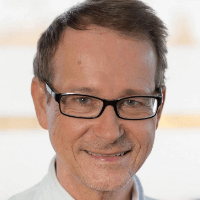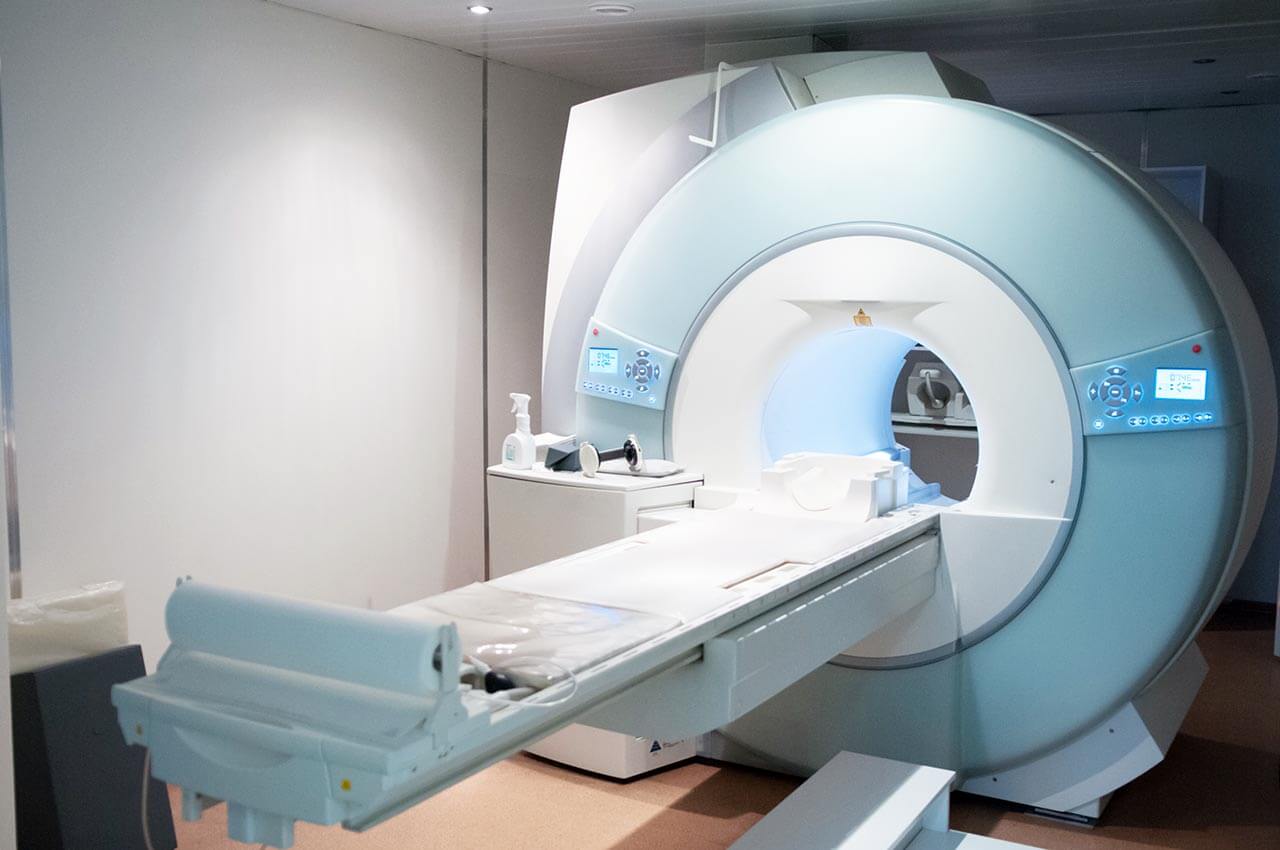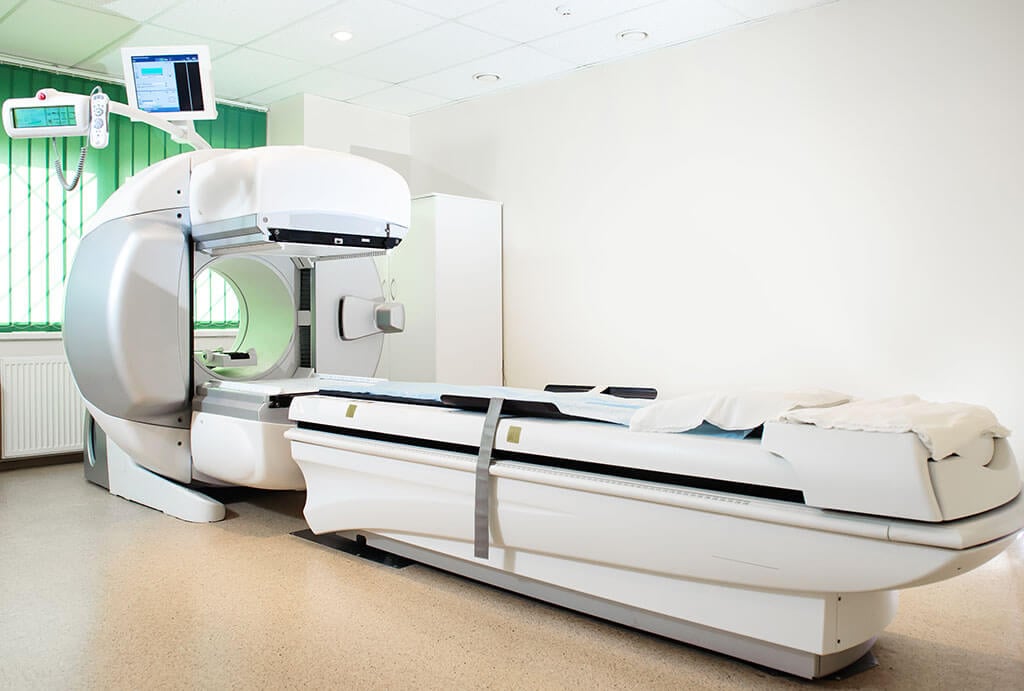
The program includes:
- Initial presentation in the clinic
- clinical history taking
- review of medical records
- physical examination
- laboratory tests:
- complete blood count
- biochemical blood test
- general urine analysis
- hormone test (TSH)
- tumor markers (AFP, CEA, СА-19-9)
- inflammation markers (CRP, ESR)
- blood coagulation analysis (aPTT, PT, INR)
- ultrasound of the abdomen
- colonoscopy (with biopsy if clinically indicated, additional cost is 2500€)
- CT/MRI of the abdomen (if clinically indicated, additional cost is 650/1200€)
- differential diagnosis with other intestine diseases
- nursing services
- nutrition recommendations
- consultation with related specialists
- treatment by the chief physician and all leading experts
- explanation of individual treatment plan
Required documents
- Medical records
- Colonoscopy (if available)
Service
You may also book:
 Price from:
Price from:
About the department
The Department of Gastroenterology at the DKD HELIOS Clinic Wiesbaden deals with the treatment of patients with diseases of the gastrointestinal tract, including the esophagus, liver, gallbladder and pancreas. The focus is on diagnostic and therapeutic endoscopic procedures. The department's team of gastroenterologists successfully carries out classical gastrointestinal ultrasound, gastroscopy, colonoscopy, functional examinations of the esophagus and gastrointestinal tract, as well as imaging studies such as X-ray, CT and MRI. In cooperation with the Department of Nuclear Medicine, the doctors also conduct a diagnostic examination combining computed tomography and positron emission tomography (PET/CT). The therapeutic options of the department include drug treatment with modern medicines, as well as endoscopic procedures to remove gastric and colon polyps, procedures to remove foreign bodies, hemostasis to stop bleeding from the gastrointestinal tract and other interventions. The highly qualified doctors of the department have all the necessary resources at their disposal to provide optimal treatment. The specialists give preference to an individual approach to each patient and his clinical case, so the medical service in the department is at the highest level. The Chief Physician of the department is Prof. Dr. med. Till Wehrmann.
When the patient is admitted to the department, the doctor holds an individual consultation with him, during which he asks questions about the medical history and current complaints. The next step is a comprehensive diagnostic examination, the purpose of which is to identify pathological changes in the organs of the gastrointestinal tract and determine the cause of their development. An integral part of any diagnostic program is an ultrasound examination of the abdominal and retroperitoneal organs: liver, gallbladder, biliary tract, pancreas, spleen, kidneys, bladder, etc. Since ultrasonic waves do not have a harmful effect on the human body, ultrasound examinations do not cause any side effects. Moreover, such diagnostic tests are absolutely painless. The department uses state-of-the-art ultrasound equipment, thanks to which doctors can assess the condition of all abdominal organs and anatomical structures with the highest accuracy. In addition to classical ultrasound, the department also successfully uses endoscopic ultrasound, which allows examining the mucous membranes of the esophagus, stomach, small and large intestine. This diagnostic examination involves the use of a special endoscope with an ultrasonic sensor. For the patient to feel comfortable during the procedure, he is administered sedatives. Whenever required, the doctors can immediately take tissue samples during the endoscopic ultrasound examination for their further study (for example, in order to exclude a malignant process).
The doctors of the department often admit patients with suspected diseases of the stomach, esophagus and duodenum. In this case, an indispensable method of examination is gastroscopy, which allows assessing the condition of these particular organs. Gastroscopy involves the use of an endoscopic instrument (gastroscope), which is inserted into the upper gastrointestinal tract through the oral cavity. A few hours before the examination, the patient should not eat any food or drink. Gastroscopy can be performed under local anesthesia or sedation. Typically, a diagnostic test does not take more than a few minutes. The doctors of the department carry out gastroscopy not only for diagnostic, but also for therapeutic purposes. The procedure is mostly used to dilate stenoses by implanting stents, remove superficial benign or malignant neoplasms.
Another common endoscopic test is colonoscopy, which is used to assess the condition of the colon mucous membrane. During the study, the doctor inserts the colonoscope through the anus into the rectum and further into all parts of the colon. The duration of the diagnostic procedure is about 20-30 minutes. Sedatives are used to relieve pain. Colonoscopy is also used therapeutically to remove polyps, which are often the precursors to colon cancer.
The department also conducts functional examinations of the gastrointestinal tract to detect dysfunctions of the esophagus, stomach, small intestine and rectum. The team of gastroenterologists successfully performs esophageal impedance, esophageal manometry, antroduodenal manometry and anorectal manometry.
The department's range of medical services includes:
- Diagnostics
- Classical abdominal ultrasound, including ultrasound-guided punctures
- Endoscopic examinations
- Endoscopic ultrasound scanning of the gastrointestinal tract, including the biliary tract and pancreas
- Gastroscopy
- Colonoscopy
- Capsule endoscopy
- Functional diagnostics of the gastrointestinal tract
- Esophageal impedance
- Esophageal manometry
- Antroduodenal manometry
- Anorectal manometry
- Imaging diagnostics
- X-ray
- CT scan
- Magnetic resonance imaging
- Positron emission tomography combined with computed tomography (PET/CT) – in collaboration with the Department of Nuclear Medicine
- Treatment
- Gastroscopy for stenosis dilatation using stents, removal of benign or malignant neoplasms of the mucous membrane
- Colonoscopy to remove colon polyps
- Other diagnostic and therapeutic options
Curriculum vitae
Higher Education and Professional Career
- 1980 - 1986 Study of Medicine at the Universities of Kiel and Frankfurt.
- 1986 - 1987 Clinical training in Internal Medicine, Municipal Hospital Hanau and University Hospital Frankfurt am Main.
- 1993 Board Certification in Internal medicine.
- 1994 Board Certification in Gastroenterology.
- 1996 Habilitation. Subject: "Sphincter of Oddi dysfunction". Senior physician at the University Hospital Frankfurt am Main.
- 2000 Chief Physician of the Department of Internal Medicine I, Hospital Siloa, Hannover.
- 2002 Extraordinary Professorship at Goethe University Frankfurt.
- 2006 Head of the Department of Endoscopy, Hospital Oststadt, Hannover.
- 2008 Chief Physician of the Department of Gastroenterology at the DKD HELIOS Clinic Wiesbaden.
Other Activities
- 2007 Chairman of the Section of Endoscopy of the German Society for Gastroenterology, Digestive and Metabolic Diseases (DGVS).
- October 2011 Secretary of the Section of Endoscopy of the German Society for Gastroenterology, Digestive and Metabolic Diseases (DGVS) and Member of the Board of Directors of the German Society for Gastroenterology, Digestive and Metabolic Diseases (DGVS).
- Since 2008 Coordinator for S3 Guidelines "Sedation in Gastrointestinal Endoscopy" of the German Society for Gastroenterology, Digestive and Metabolic Diseases (DGVS) (first version in 2008 and updated version in 2015).
Research Interests
- Interventional endoscopic procedures.
- Treatment of gastrointestinal motility disorders.
- Emergency medical care for acute pathologies of the gastrointestinal tract.
- Treatment of proctological diseases.
- Nutritional medicine.
Photo of the doctor: (c) DKD Helios Klinik Wiesbaden
About hospital
The DKD HELIOS Clinic Wiesbaden has long made a name for itself in the international medical arena by introducing an optimal model of medical care, combining the use of the most advanced medical technologies, the experience of highly qualified doctors and impeccable quality of patient care. The medical facility first opened its doors to patients in 1970. The world famous Mayo Clinic Rochester in America served as a model for the design of the medical complex. Since the foundation of the clinic, the main direction of its activities has been comprehensive diagnostics of complex diseases integrated into an interdisciplinary treatment concept. Today, an integral part of clinical practice is also preventive diagnostics aimed at the early detection of pathological changes in the human body. In recent years, the clinic has been actively developing the direction of surgery, in which it has significantly succeeded. The clinic enjoys a reputation as one of the best medical facilities in Europe in the field of endocrine and colorectal surgery, as well as in hernia repair surgery.
The clinic has 24 specialized departments. Each of them offers a team of experienced doctors, whose main value is the patient's health. The work of all doctors of the medical facility is based on a single credo – "Treat not a disease, but a patient". According to this belief, the course of treatment should be as individual as possible, taking into account the patient's physical characteristics, lifestyle, diet, emotional state, etc.
The clinic's bed capacity consists of 138 inpatient beds and 60 beds in a day hospital. Many diagnostic and therapeutic procedures are performed on an outpatient basis. The diagnostic and treatment rooms, like the operating rooms of the clinic, are equipped with state-of-the-art technology to ensure the observance of strict hygiene and safety standards. The advanced medical equipment allows detecting the slightest changes in the functioning of organs and their structure with impeccable accuracy, thanks to which doctors can diagnose complex pathologies at the very early stages. This greatly increases the chances of a successful cure.
The location of the clinic in Wiesbaden, known as one of the oldest thermal spas in Europe, is another pleasant advantage for the patients. Arriving at the clinic for a preventive diagnostic examination, one can improve his health in the healing thermal springs, as well as enjoy the sightseeing of historical monuments. The medical center is located in the immediate vicinity of the English style Spa Park founded in the distant 1852, so in the free time from medical procedures one can take a pleasant walk in the beautiful park.
Photo: (с) depositphotos
Accommodation in hospital
Patients rooms
The patients of the DKD HELIOS Clinic Wiesbaden live in comfortable single and double rooms. Each patient room has an ensuite bathroom with shower and toilet. The standard patient room furnishings include an automatically adjustable bed, a bedside table, a table and chairs, a TV and a telephone.
The clinic also offers enhanced comfort rooms with spacious bathrooms, which additionally include a large mirror, hairdryer, changeable towels and toiletries. These patient rooms also have a safe for storing valuables, a free minibar with soft drinks, a flat-screen TV with satellite channels and free Wi-Fi.
Meals and Menus
The patients of the clinic are offered tasty and balanced three meals a day: breakfast, lunch and dinner. If for some reason you do not eat all the foods, you will be offered an individual menu. Please inform the medical staff about your dietary preferences prior to treatment.
The clinic also has a cozy cafe where one can taste delicious snacks, salads, main courses and desserts. One can also enjoy aromatic coffee, delicious tea and soft drinks in the cafe.
Further details
Standard rooms include:
Religion
The religious services are available upon request.
Accompanying person
During the inpatient program, the accompanying person can live with the patient in a patient room or a hotel of his choice. Our managers will help you choose the most suitable option.
Hotel
During the outpatient program, the patient can stay at the hotel of his choice. Our managers will help you choose the most suitable option.



